Your Cart is Empty
1 YEAR WARRANTY ON ALL PRODUCTS - **Please Note No International Shipping Outside of the USA**
1 YEAR WARRANTY ON ALL PRODUCTS - **Please Note No International Shipping Outside of the USA**
This is a Great & Informative article published by Everyday Health and reviewed by Lindsey Marcellin, MD, MPH.
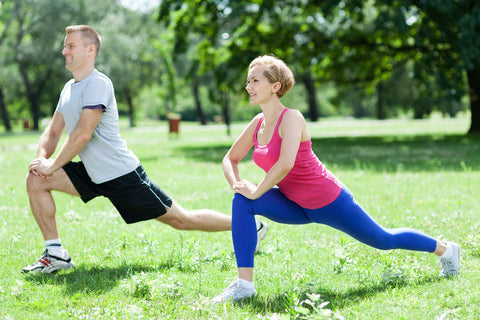
Too tired to exercise? Forty to 80 percent of people withrheumatoid arthritis (RA) cite fatigue as their most debilitating symptom, according to research published in theIsrael Medical Association Journal in 2014. That, coupled with joint pain and other symptoms of RA, can be a big barrier to getting regular exercise. “This decreased activity level in people with rheumatoid arthritis actually results in reduced muscle strength and ultimately can lead to increased arthritis pain and disability,” says Hareth Madhoun, DO, a rheumatologist at Ohio State University's Wexner Medical Center. But regular exercise can actually help ease the symptoms of RA, according to the Centers for Disease Control and Prevention. “People who exercise have improved daily function, decreased depression and fatigue, reduced pain, and improved sleep,” Dr. Madhoun says. Don’t use rheumatoid arthritis as an excuse not to exercise. Instead, make it your reason to get moving with these seven expert-recommended RA exercises.
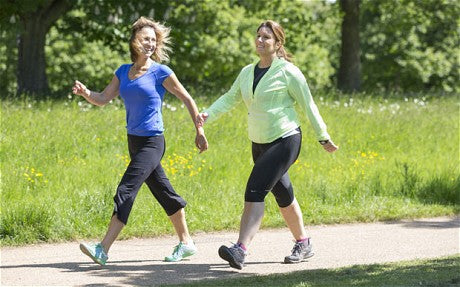
It’s free, simple, you can do it almost anywhere, and it’s easy on joint pain. Not only is walking good for people with rheumatoid arthritis, but it’s great for your heart health, says Craig Hensley, PT, DPT, OCS, a physical therapist at the University of Chicago Medical Center. And that’s especially important for people with rheumatoid arthritis because the Arthritis Foundation notes that RA increases the risk for heart disease.

In the water is a great place to stretch your muscles and soothe your joints, so hit the pool for an aerobic workout. Swim laps or try a water aerobics class.Swimming, along with other types of aerobic exercise, helps control weight, boost mood, and improve sleep, and it’s good for overall health, Madhoun says. Dr. Hensley suggests doing aerobic exercise such as walking, swimming, or biking three to five times a week, eventually working up to sessions of 30 to 60 minutes.
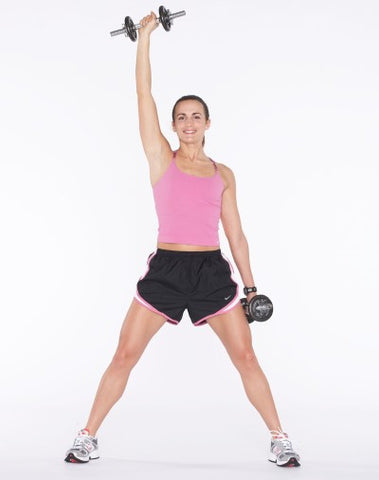
The stronger your muscles are, the less strain there is on yourjoints. So don’t be afraid of weights, Hensley says, because they’re a great way to get stronger and boost muscle mass. Experiment with weight machines, free weights, and resistance bands. Start slowly and increase your intensity gradually. Aim for two to three days a week, doing eight to 10 different exercises that work different large muscle groups across your body. Do two to three sets of eight to 12 repetitions per exercise.
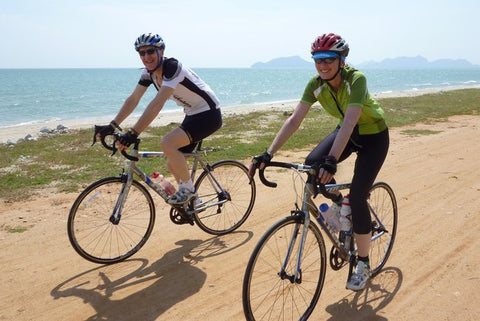
“Particularly for people with arthritis, the smoother motion of cycling minimizes the jolting of traditional jogging,” says Brian LaMoreaux, MD, a rheumatologist at Wexner Medical Center. “Unfortunately, some people with rheumatoid arthritis may have hand damage that can limit their ability to participate in cycling.” If your hands can handle it though, trybiking a few times a week. Biking may help you condition your body for other types of exercise as well, Dr. LaMoreaux says.
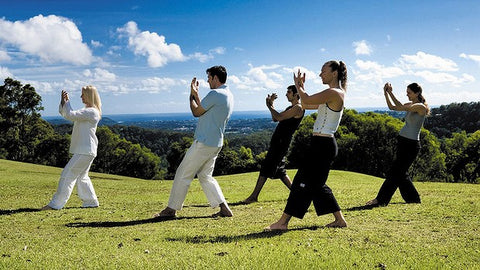
“When a joint and its surrounding muscles are affected by arthritis, the result is often impaired coordination, position awareness, balance, and an increased risk of falling, which is why people complain of their ‘knees giving out’ with activity,” Madhoun says. He explains thatyoga and tai chi are examples of exercises that improve body awareness, which can increase coordination and balance, sense of where joints are positioned (proprioception), and relaxation. Plus, they include flexibility and range-of-motion moves, which boost joint flexibility and joint function, according to the American College of Rheumatology.
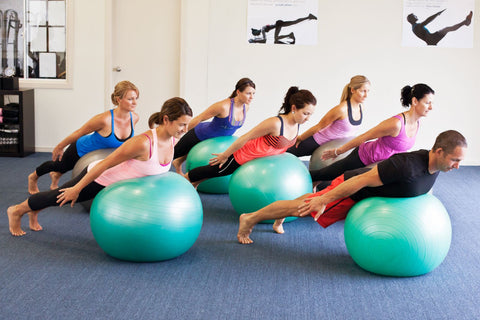
Pilates focuses on strengthening and improving control of muscles, particularly muscles that influence posture, according to the National Center for Complementary and Alternative Medicine. This can make Pilates helpful in managing pain and coping with the symptoms of rheumatoid arthritis. Research published in the journalArchives of Physical Medicine and Rehabilitation in 2013 found that children with juvenile idiopathic arthritis saw a reduction in joint pain after participating in Pilates for six months compared with a group that did conventional exercises.
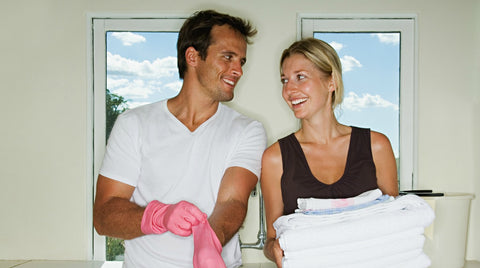
Youdon’t always have to hit the gym or even the pavement for a good workout. There's plenty of exercise to be had at home. Give your house a thorough cleaning or work in your yard pulling weeds, raking leaves, or cutting the grass. While you’re at home, practice balancing on one leg to improve strength and balance, Hensley says. Improvise strengthening exercises by using a chair to move from sitting to standing, or lift soup cans as light weights.

Respect your body andmake adjustments according to your RA symptoms. “When people are in a flare of their disease, I often tell them to focus on flexibility and low-impact exercises such as swimming, yoga, and walking,” says Anisha Dua, MD, MPH, a rheumatologist and assistant professor at the University of Chicago Medical Center. “When rheumatoid arthritis is well-controlled, it’s highly beneficial to engage in regularly scheduled physical exercise, including aerobic and strengthening exercises.”
Be Sure to "Like" our Facebook Page to See All Our Happy Winners & Prizes